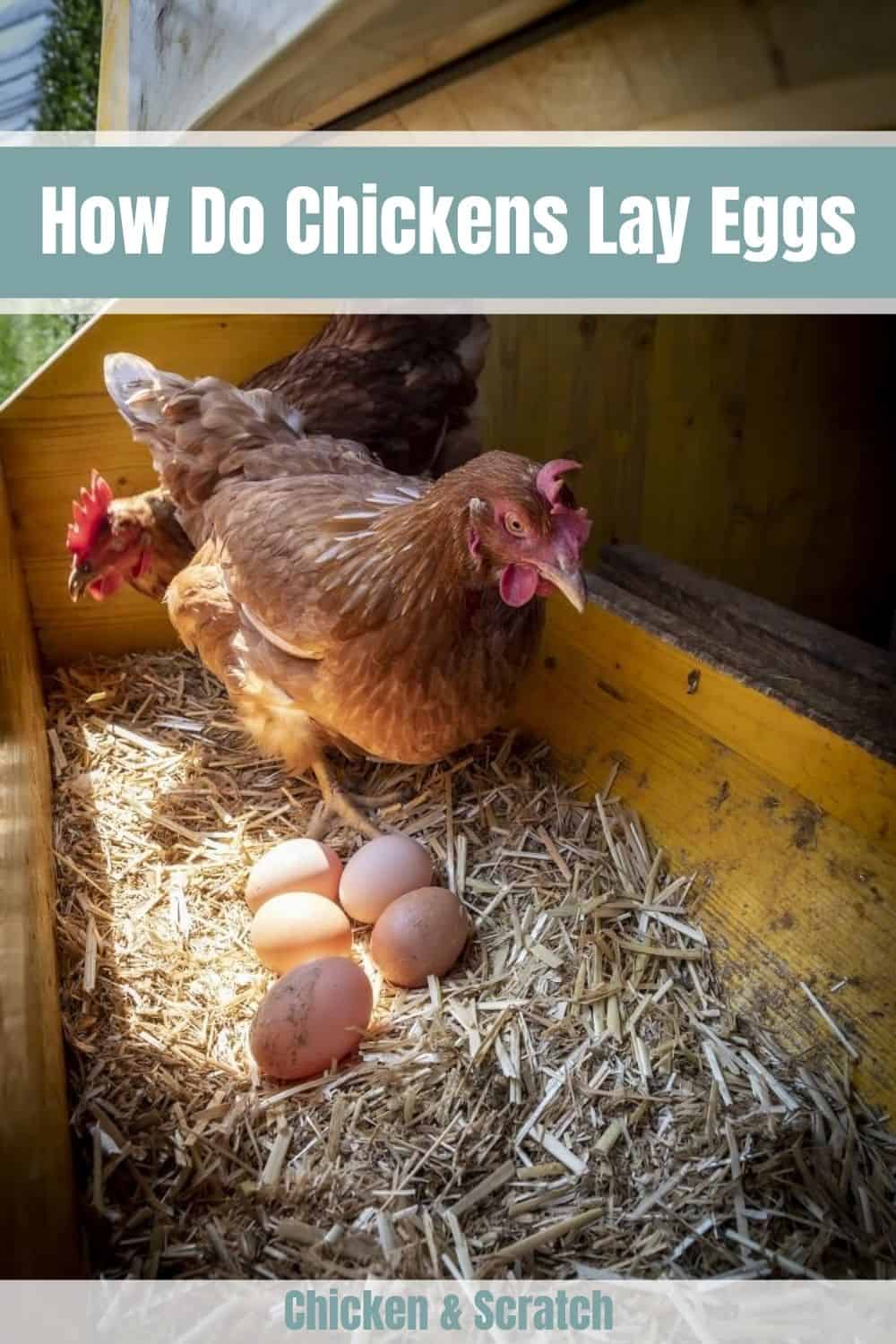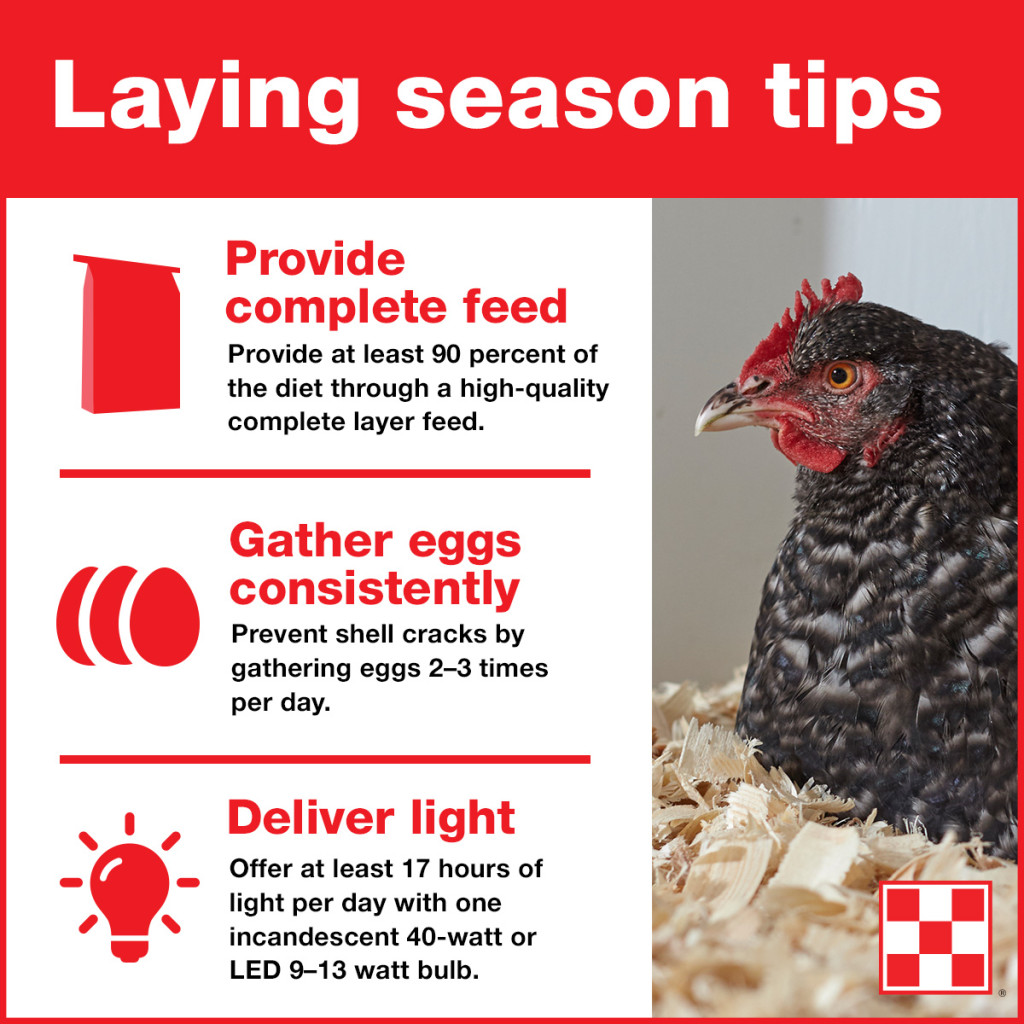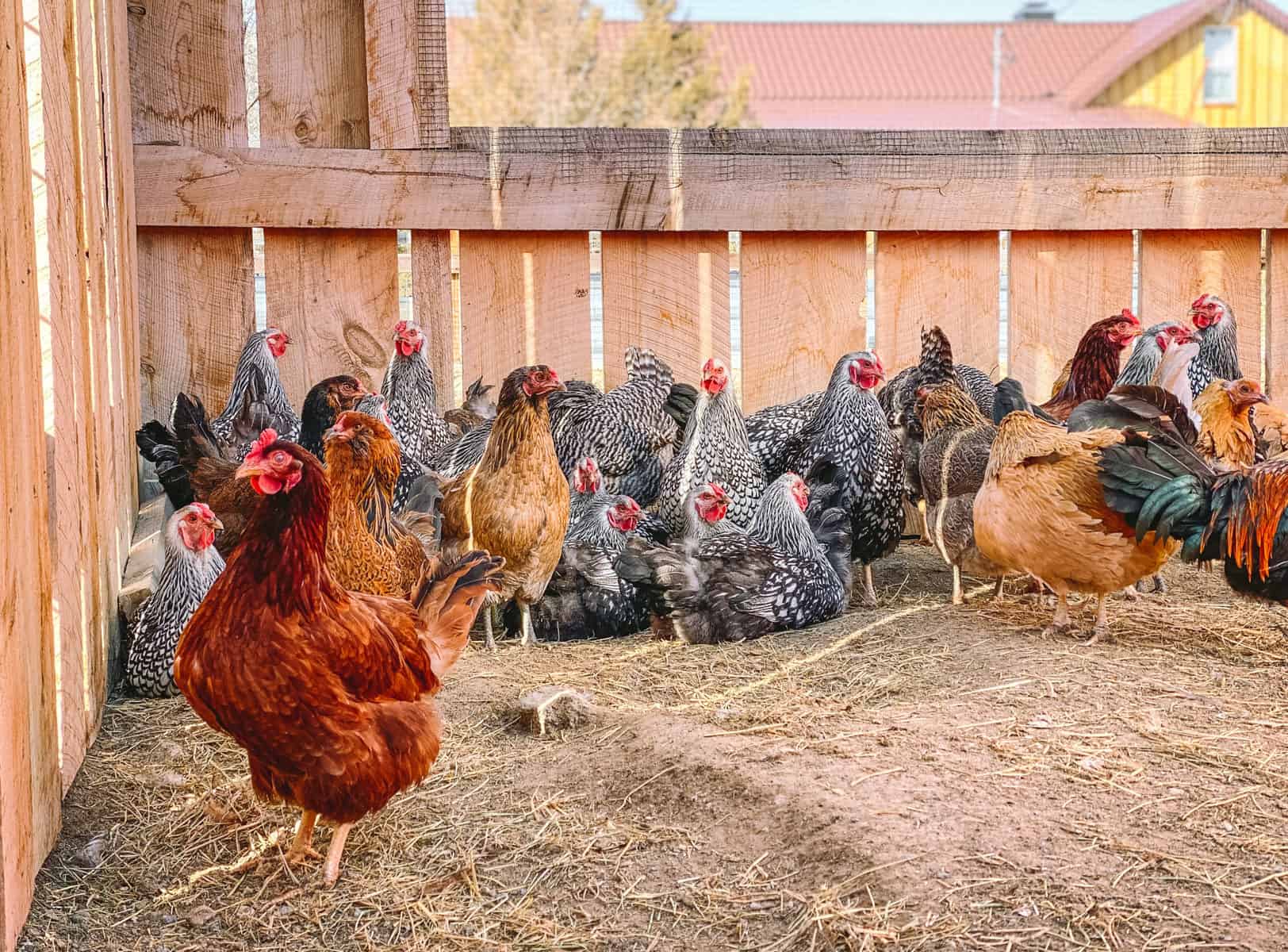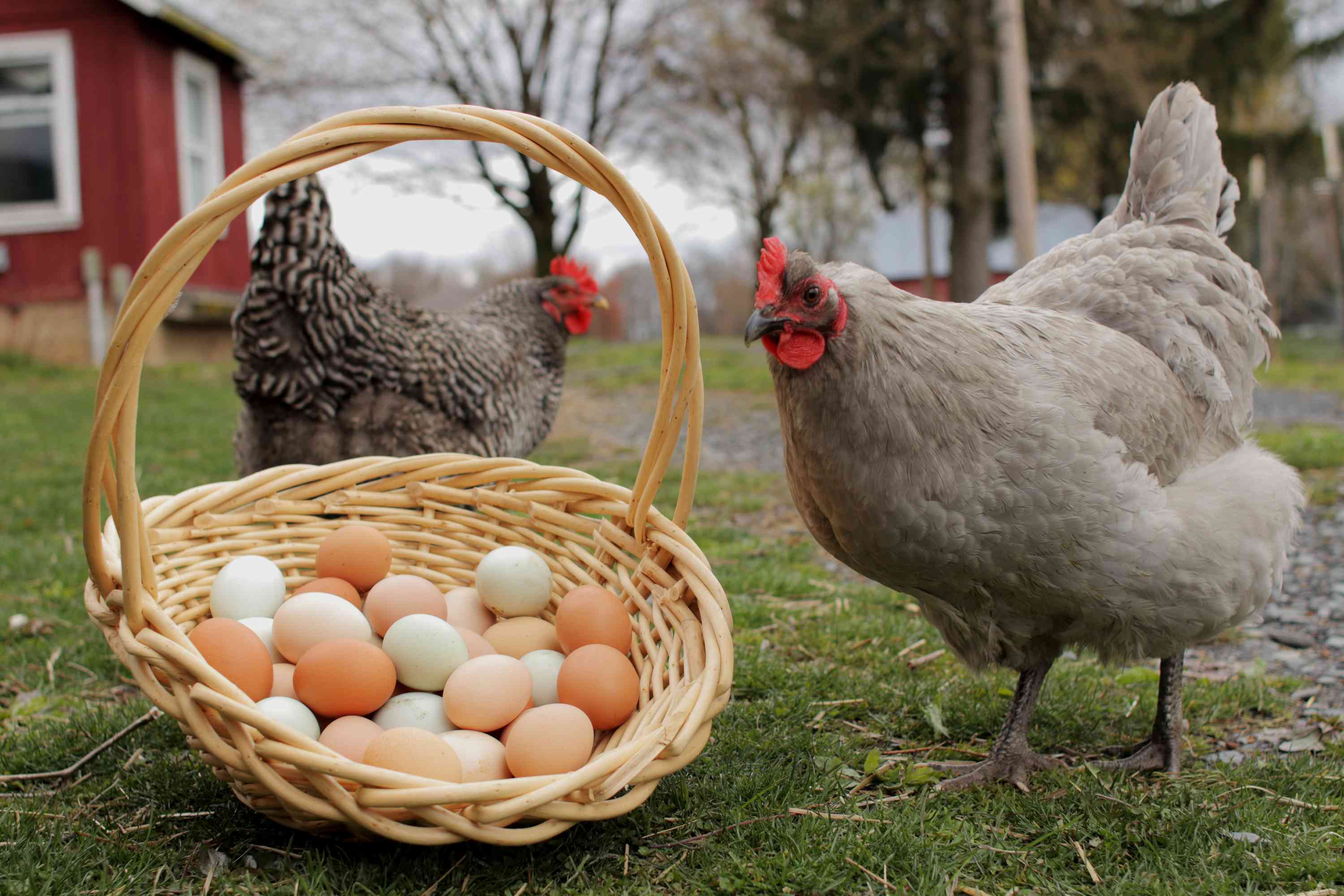Are you curious about the egg-laying habits of hens? Do hens lay eggs every day? Keeping chickens can be a rewarding and enjoyable experience, but it is important to have a good understanding of the daily care requirements of chickens in order to ensure their health and well-being. This article provides a comprehensive guide to chicken husbandry, including information on whether or not hens lay eggs every day.
Why Do Chickens Lay Eggs Everyday?

Chickens lay eggs every day because they are instinctually driven to reproduce. When a hen reaches reproductive maturity, her body produces hormones that trigger the production of an egg. This is a natural process known as oviposition. Even if a hen is not kept in a traditional breeding environment, she will still lay eggs. This is why chickens lay eggs every day, as they are driven to reproduce regardless of the environment they are in.
Hens usually lay one egg per day, although they can lay up to three eggs in a 24-hour period. The eggs are usually the same size, although some hens may lay smaller eggs. A hen can lay eggs for up to five years, although her production of eggs will typically decline as she gets older.
In addition to being instinctually driven to reproduce, chickens lay eggs for other reasons. For example, a hen may lay an egg if she feels threatened or is stressed by her environment. This is because the egg provides a sense of security for the hen, as it is a form of protection from potential predators.
In order to ensure that chickens lay eggs every day, it is important to provide them with a healthy and safe environment. This includes providing them with plenty of food and water, as well as a clean and comfortable coop. Additionally, it is important to make sure that the hen is not feeling overly stressed, as this can lead to a decrease in egg production.
In conclusion, chickens lay eggs every day because they are instinctually driven to reproduce. In order to ensure that they lay eggs every day, it is important to provide them with a healthy and safe environment. With proper care, a hen can lay eggs for up to five years.
How Do Chickens Lay Eggs?

Do hens lay eggs every day? The answer is no, hens do not lay eggs every day. A hen’s egg laying is determined by several factors such as age, breed, and season. To understand the egg-laying habits of chickens, it is important to understand how they lay eggs.
How Does a Chicken Lay an Egg?
A hen’s reproductive system is unique in that it enables her to lay eggs without the necessity of mating. The egg travels from the ovary, through the oviduct, and out through the vent. As the egg passes through, it is coated with a protective layer of calcium carbonate, which gives it its hard shell.
How Often Do Chickens Lay Eggs?
The frequency of egg laying depends on the age and breed of the hen and the season in which she is laying. Generally, hens will lay eggs every 25-26 hours, with most breeds laying eggs every day. However, hens usually lay fewer eggs during the winter months and may take a break from laying in the summer months.
Overall, hens will not lay eggs every day, but the frequency of egg laying can be managed with proper care and nutrition. With proper care and nutrition, the average hen will produce up to 300 eggs per year.
What Are the Benefits of Having Chickens Lay Eggs Every Day?

Having chickens lay eggs every day can be a great benefit for individuals, families, and communities. For starters, it can provide a steady supply of fresh, nutritious eggs. Eggs are a great source of protein and other essential nutrients for humans. Additionally, eggs can be used in a variety of recipes, providing a well-rounded and tasty meal.
Not only do chickens lay eggs every day, but they can also provide a source of income. As they lay eggs, they can be sold to those in need, providing an additional source of income. This can be a great way to supplement a family’s income.
Having chickens laying eggs every day also means that they are providing natural pest control. Many of the insects and other pests that may be harmful to humans can be eaten by chickens. This can help reduce the need to use chemical-based pest control methods.
Finally, having chickens lay eggs every day can be a great way to get involved with sustainable agriculture. By raising chickens and collecting eggs, you are helping to reduce the amount of resources used to produce eggs. This can help reduce your carbon footprint and help create a more sustainable farming system.
Overall, the benefits of having chickens lay eggs every day are numerous. Whether you’re looking for a source of fresh eggs, income, natural pest control, or a way to get involved in sustainable agriculture, having chickens lay eggs every day can provide all of these benefits.
What Are the Challenges of Having Chickens Lay Eggs Every Day?

Nutrition: Providing the right nutritional balance for your chickens is essential to ensure they lay eggs every day. Chickens require a balanced diet of protein, carbohydrates, vitamins, minerals, and water to maintain healthy egg-laying activity.
Lighting: Providing the right amount of light is also critical for your chickens to lay eggs every day. Chickens require 14-17 hours of light in summer and 10-12 hours of light in winter to stimulate egg-laying activity.
Predators: Predators such as foxes, hawks, and snakes can be a major threat to your chickens and their eggs. Keeping your chickens safe from predators should be a top priority when raising chickens.
Parasites: Chickens are prone to parasites such as lice and mites, which can reduce egg production and lay to health problems for the birds. Regularly checking your chickens for signs of parasites is essential for maintaining egg production.
Space: Chickens require enough space to move around and lay eggs comfortably. If chickens are overcrowded, they may not lay eggs as frequently or at all.
Stress: Stress can reduce egg production in chickens, so it’s important to keep them happy and comfortable. Providing them with a safe environment and plenty of food, water, and shelter can help reduce stress levels.
How to Ensure That Chickens Lay Eggs Every Day

Having chickens is a great way to enjoy fresh eggs every day. But do chickens lay eggs every day? The short answer is no, but there are some steps you can take to ensure that your chickens are laying eggs on a regular basis.
The first step is to set up an appropriate environment for your chickens. This includes providing them with a safe, secure coop and access to adequate water, food, and light. It’s also important to keep the coop clean and free from any predators.
Next, you’ll want to make sure your chickens are getting the right nutrients from their diet. A balanced diet of grains, greens, and protein is essential for chickens to stay healthy and lay eggs on a regular basis. You may also want to supplement their diet with calcium-rich feed or treats like mealworms.
Finally, you’ll need to ensure that your chickens are getting enough rest. Chickens need 12-14 hours of darkness each day to lay eggs. Make sure they have a quiet, dark place to sleep and rest.
Following these steps will help ensure that your chickens lay eggs every day. With a little bit of effort, you can enjoy the pleasure of fresh eggs every morning.
How to Harvest Eggs From Chickens

Harvesting eggs from chickens is a simple and straightforward process that requires minimal effort and time. First, locate the nesting boxes where the chickens lay their eggs. These can be specially made nesting boxes or simple cardboard boxes. Second, put on a pair of gloves to protect your hands from any sharp edges on the egg shells. Third, gently reach into the nest and collect the eggs. Fourth, inspect each egg for any cracks or blemishes. If the egg is cracked, discard it. Finally, put the eggs into a basket or container and store them in a cool, dry place.
Harvesting eggs from chickens ensures a regular supply of fresh eggs that can be used for cooking or baking. Additionally, it is important to collect the eggs regularly to prevent the chickens from eating them or from becoming too stressed from sitting on them for too long. Collecting eggs daily is the best way to ensure a regular supply of fresh eggs.
What to Do With the Eggs That Chickens Lay Every Day
- Eat Them – The most obvious answer to what to do with the eggs that chickens lay every day is to eat them. Eggs are a nutritious and delicious source of protein, and they can be used in a variety of dishes. Some people prefer to boil them, while others enjoy them in omelettes or scrambled.
- Sell Them – Another option for what to do with the eggs that chickens lay every day is to sell them. Many farmers and homesteaders find that selling their eggs can be a lucrative business. You can sell them at local farmers markets, to friends and neighbors, or even online.
- Hatch Them – If you want to increase the size of your flock, you can use the eggs your chickens lay every day to hatch new chicks. You can do this by incubating the eggs in an incubator or by letting the mother hen do the job herself. This can be a great way to increase the number of chickens you have and to get new breeds.
The answer to why do chickens lay eggs every day is because they are genetically programmed to do so. They lay eggs in order to reproduce and increase their population. It is important to know what to do with the eggs they lay so that you can get the most out of your chickens.
Frequently Asked Questions
What are the Most Common Breeds of Chickens Used for Egg-Laying?
- Rhode Island Red – This breed is a good choice for beginners, as they are hardy, cold-resistant and lay good-sized brown eggs. They are good foragers and can be kept in a free-range environment.
- Leghorn – These chickens are known for their high-volume egg-laying. They lay large, white eggs. Leghorns are skittish and active, so they may not be the best choice for a backyard flock.
- Sussex – Sussex chickens are hardy, active birds that lay large, light-brown eggs. They are a dual-purpose breed, meaning they can be used for both egg-laying and meat production.
- Australorp – This is a good egg-laying breed, and also a popular show bird. They are cold-hardy and lay large, dark-brown eggs. They are also good foragers and can be kept in a free-range environment.
- Araucana – This is a rare breed that lays blue eggs. They are friendly and docile, but can be prone to broodiness. They are also cold-hardy and good foragers.
- Wyandotte – This is a good dual-purpose breed that is cold-hardy and docile. They lay large, brown eggs, and are good foragers. They can also be used for meat production.
All of these breeds are good egg-layers, but not all of them will be suitable for every situation. Before choosing a breed, consider your climate, space restrictions, and other factors.
How often should I collect the eggs from the coop?
Daily – Collecting eggs from the coop daily is the most ideal way for ensuring the eggs remain fresh and safe. It also gives you the opportunity to check up on the health of your chickens.
Benefits of Daily Collection:
- Eggs remain fresh and safe
- Opportunity to check on the health of chickens
- Helps prevent build-up of eggshells in the coop
- Reduces the chances of eggs being eaten or soiled by other animals
Other Factors:
Other factors to consider when deciding how often to collect the eggs from the coop include:
- Number of chickens – If you have a larger flock of chickens, you may need to collect more frequently.
- Climate – During hot temperatures, eggs should be collected more often to prevent them from becoming too warm.
- Egg Consumption – The frequency of egg collection should be based on the number of eggs you consume.
What are the Signs that a Hen is No Longer Producing Eggs?
As hens age, their egg production will decline. Common signs that a hen is no longer producing eggs include a decrease in size and weight, fewer eggs laid, a change in eggshell colour, and a decrease in eggshell quality. Additionally, a hen’s comb may become paler and less prominent, as well as her wattles. Her behaviour may also change, as she becomes less active and more withdrawn.
How can I improve the Egg-Laying Rate of my Chickens?
Health: Ensuring that your chickens are healthy and in good condition is the most important factor in improving their egg-laying rate. Provide a nutrient-rich diet to ensure they have the necessary vitamins and minerals to lay eggs. Make sure they have access to clean water, and provide a safe and comfortable home.
Lighting: Chickens need 14-16 hours of daylight to produce eggs. Install artificial lights to keep the coop bright and encourage egg production.
Breeding: Choose a breed of chicken that is known to be high-producing. The breed of chicken you choose will have a large impact on the number of eggs they lay.
Space: Provide chickens with enough space to move around and forage for food. Crowded chickens are less likely to lay eggs.
Stress: Stress can reduce the number of eggs chickens lay. Provide a quiet and stress-free environment to ensure they are relaxed and in the best condition for laying eggs.
What kind of feed should I provide my chickens to ensure healthy egg production?
Protein: Protein is essential for chickens to produce eggs. Provide a high-protein feed such as layer pellets, which contain 16-18% protein. Additionally, offer a variety of supplemental proteins such as sunflower seeds, mealworms, and cooked grains.
Vitamins and Minerals: Provide a balanced mineral and vitamin supplement or feed that includes essential vitamins, such as vitamin A, D, and E, as well as minerals like calcium and phosphorus.
Grit: Grit is important for a chicken’s digestion. Offer oyster shell or granite grit to your chickens to keep them healthy.
Fiber: Provide a variety of fibrous foods such as grass, leafy greens, and vegetables to promote healthy egg production.
Fresh Water: Clean, fresh water should be available at all times. Offer your chickens a water source that is free of debris, algae, and other contaminants.
Conclusion
Hens lay eggs nearly every day, but their egg production can vary depending on their age, health, and environment. For optimal egg production, chicken owners should ensure their hens have access to food and water, a safe and comfortable environment, and periodic care and attention. With the right care and attention, chickens can provide their owners with a steady supply of fresh eggs.
